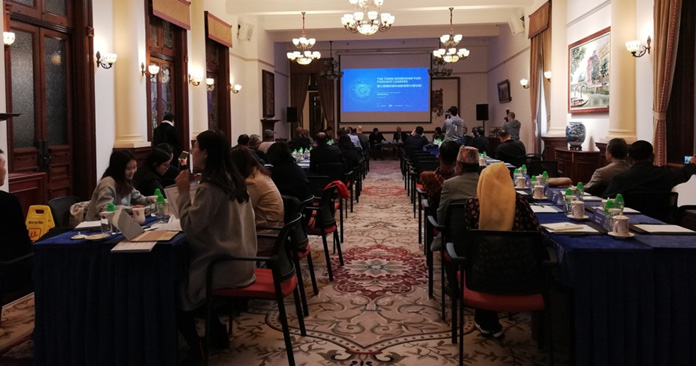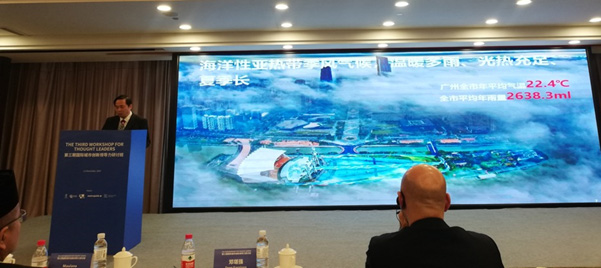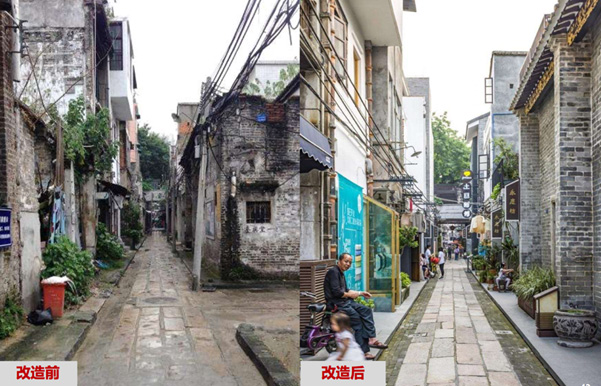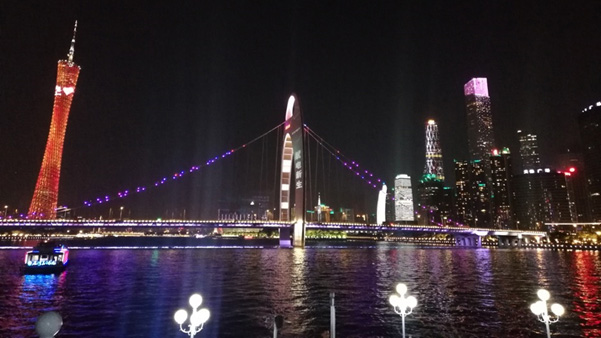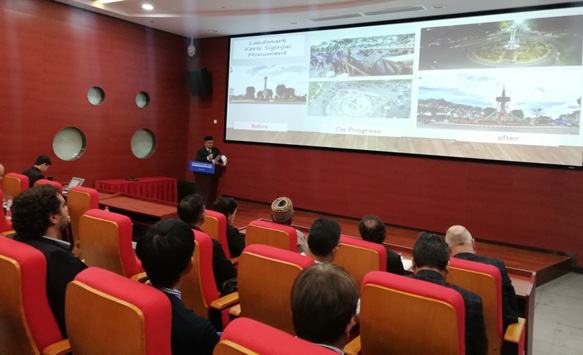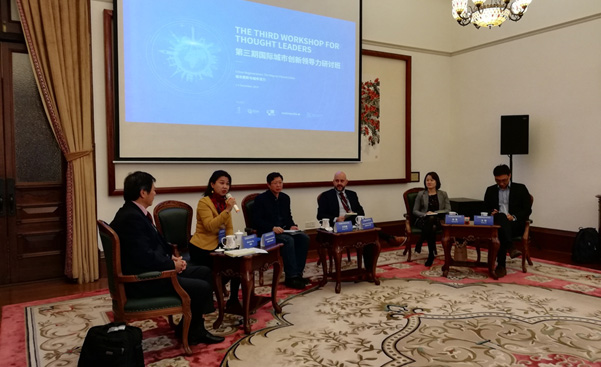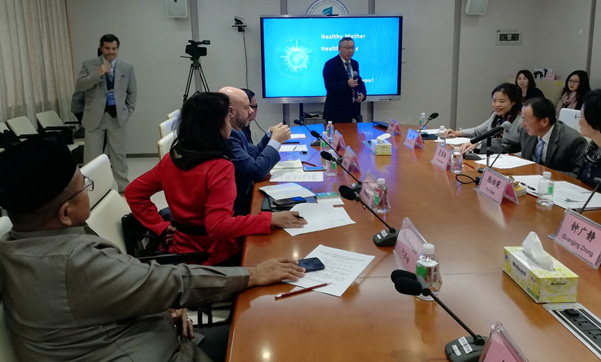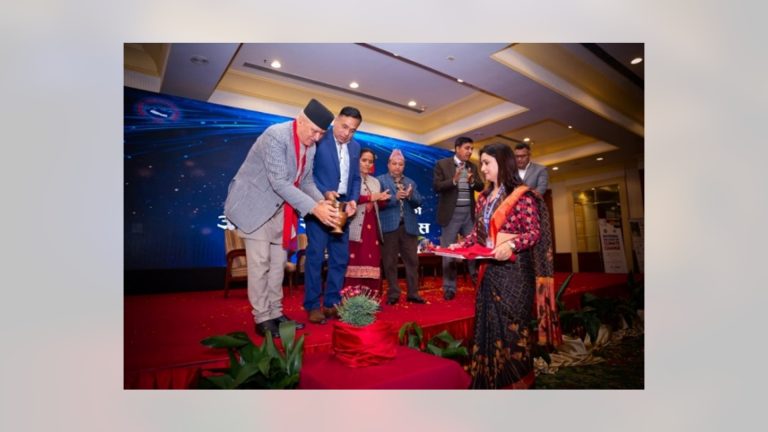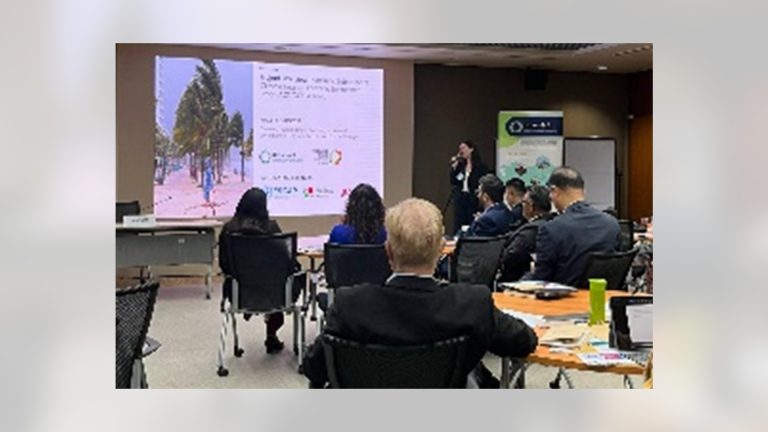2 – 6 December 2019 | GUANGZHOU – One of the key ideas for sustainable urban life is to allow city contextualise its various aspects and to reshape by considering the context of local people. Responding to this, UCLG ASPAC highly supports the initiative of Guangzhou City in organising the third Workshop for Thought Leaders taking theme Urban Regeneration: The Way to Vibrant City. This workshop is regularly conducted under the framework of Guangzhou Urban Innovation Award. This year, for the first time, the workshop collaborated with UCLG ASPAC Standing Committee Women in Local Governments and incorporated discussion on women welfare and family friendly urban planning and urban regeneration as part of the journey towards vibrant city. Representing UCLG ASPAC, Secretary General Dr. Bernadia Irawati Tjandradewi joined more than 40 distinguished participants from 25 cities of 19 countries and representatives from relevant international organisations in in-depth discussions and knowledge sharing.
Standing on behalf of Guangzhou city were Mr. Pan Jianguo, Secretary General of the Communist Party of China (CPC) Guangzhou Municipal Committee; Mr. Octavi de la Varga, Secretary General of the Metropolis; and Mr. Thomas Mxolisi Kaunda Executive Mayor of Durban of South Africa, sister city of Guangzhou, that warmly welcomed distinguished participants.
In their speech, each of them highly expected that participants could find the workshop as a learning platform among cities, as urban renewal is solution for challenges faced by local people and communities. In addition, they would find the learning process useful as knowledge sharing is an essential element in the pursuance of sustainable development goals and implementation of New Urban Agenda. Besides, hosting the workshop for the third time, Guangzhou expected to be able to contribute to the development of cities around the world; particularly at the regeneration stage. In addition, there was also unveiling ceremony of the appointment of Guangzhou as Metropolis Regional Secretariat for Asia-Pacific.
Guangzhou Experience on Urban Regeneration and City Vibrancy
Mr. Deng Kanqiang, Deputy Director General of Guangzhou Municipal Planning and Natural Resources Bureau and Mr. Ma Xiangming, Chief Engineer of Guangdong Urban and Rural Planning and Design Institute shared the experience of Guangzhou in city renewal as well as Development of Bay Area consecutively.
The case of urban renewal in Guangzhou started from decision of national government to strictly control the use of land in the country. When it comes to the city government, Guangzhou implemented it by making improvement to the land use. They applied protection and development principles for land use in the city. Those principles are applied to ecologically important areas, as well as areas with cultural and historical values. Within this context, urban development is still allowed to serve urban functions and increase Gross Domestic Products, while at the same time considering economical and efficient use of potential land. Included are industrial reform, transformation and upgrading, science and technology reform, building a 30-km boutique Pearl River, and focusing on key areas to ensure transportation hubs and major livelihood facilities
Land for construction and advanced industries.
Supporting the economical factor, city government of Guangzhou focus on building strategic transportation hub area, urban rail-station, high-speed roads and urban main roads, promoting urbanisation of Guangzhou and Foshan and accelerating renewal and transformation (such as collective state-owned mixed development, and collective land preparation institutions), and guiding the introduction of innovative industries through management and control of the whole life cycle of land.
In addition, government also pay attention to tackle social problems. Efforts taken include providing 972 canteens for the elderly, formulation of “Three-year Action Plan for the Installation of Elevators in Old Residential Quarters in Guangzhou” (2019-2021). Out of total 6,153 approvals for elevator establishment, 3,778 elevators were built.
Urban Renewal in Enning Road (Yong Qing Fang)
Under the protection and development principles, government apply co-creation method. They involve local people, private sectors, urban planners and other relevant stakeholders to discuss their aspirations in making the area more liveable. Transformation of Yong Qing Fang area is one of many others, namely Shenjing Village, Huangpu Ancient Village, and Pazhou West district.
Transformation in Yong Qing Fang Area was started in 2006 to reconstruct dilapidated house. The transformation process was temporarily suspended in order that government could listen to local aspirations. During the process, they sit together with private sectors, urban planners and relevant stakeholders and continue the process accordingly. Based on the agreement, private sector has been given permit to operate and manage the area for 15 years. Afterwards, negotiation will take place.
Urban Development in the Pearl River Delta
The Pearl River Delta has gone through several stages of development. In 1994, Guangdong Provincial Government announced the establishment of Pearl River Delta Economic Open Zone and for the first time, the scope of the Pearl River Delta Economic Zone was administratively defined, which includes Guangzhou, Shenzhen, Zhuhai, Foshan, Jiangmen, Dongguan, Zhongshan, Huizhou, Zhaoqing and other 9 cities, with a total area of 41,700 square kilometers, accounting for 23.2% of Guangdong’s area. In 1995, coordinated development plan for the Pearl River Delta City Group began. This resulted in the establishment of a spatially coordinated development model for sustainable development (metropolitan areas, densely populated areas, open areas, and ecologically sensitive areas). Now, the development in Pearl River Delta is the largest in East Asia.
Greater Bay Area – Current Development
As trends in international trade emerged, China has seen the shift from goods to service oriented trade. In addition, Hongkong Development Strategy included construction of bridge connecting Hongkong-Zhuhau-Macao. These factors have positively led to the development of Guangdong-Hongkong-Macau Greater Bay Area, that will feature technological innovation. This programme has been developed in the last three years.
Discussions among Cities
Vice Mayor Maulana of Jambi exposed development they have in the city of Jambi. Facing challenge in population growth and environmental related challenges, local government of Jambi City has come up with various local innovations, namely development of waste-to-energy facility in collaboration with UCLG ASPAC and UNESCAP, development of clean, safe and smart villages (through infrastructure development, welfare improvement), developing partnerships with various stakeholders, developing sub-districts by involving community, improving open green space by 30%, and providing green transportation, among many others.
In relation to discussion on Modern Urban Planning, Urban Renewal and Citizen Experience, participants cultivated further on the experience of Guangzhou and China in regards to challenge that drives to urban renewal, namely urbanisation. Balance is the keyword of discussion. Dr. Raymond Yu Wang of Sun Yat Sen University shared the experience of China. Reflecting on the development of Beijing, Shanghai, and Guangzhou, he shared that in old times people tend to migrate to those cities imagining better opportunities and education. In fact, those three cities indeed accumulate the growth and development of China. However, as people also found out challenges of living in big cities such as things are more expensive and competitive and at the same time found better opportunities in their hometown, things are cheaper, better basic services, communication and transportation are much easier, the tendency now is people returning to their hometown after completing education in big cities like Guangzhou. That is where balance finally takes place. Discussion about seeking balance continued in relation to environment and industry. With the currently vast industry development, China is now seeking for balance as well. For example, development in Guangzhou (and China as a whole) which is driven by industry. When taking environmental approach, it needs to be assured that the approach will not sacrifice local people livelihood. Otherwise, it will also lead to other challenge such as social stability.
Panel Discussion and Group Discussion
List of panels discussing topic on New Technology and Emerging Industry Boost New Urban Development shared insights to participants. Professor Wang Shifu of South China University of Technology mentioned that it is hard to say what makes development in Guangzhou as the roles of technology, smart cities, and industries are all overlaid. Associate Professor Zhang Hui of Sun Yat Sen University said that urban renewal is not merely about reactivating land resources but must also include industry for considerations in the process. According to Associate Professor Wang Yu of Sun Yat Sen University, tackling climate challenge in relation to industry that boost new urban development must consider several approaches, namely institutional approach (by establishing emergency management agency), technology, market approach (by developing community group to prepare), and heavy investment approach. UCLG ASPAC Secretary General Dr Bernadia Irawati Tjandradewi also added that with the vast development of technology, the control is actually on us how we would like to utilise the technology. Metropolis Secretary General Octavi de la Varga put emphasis on the importance of collaboration, as we cannot solve all challenges ourselves. In addition, he mentioned the need to consider indigenous factors and values in tackling challenges.
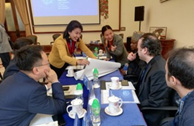
Other group identifies urban regeneration with political will and commitment of city leaders to respond to crisis (such as deterioration of environment, health), good order of public transportation, people-oriented development (education, waste management). All development aspects take human-based approach for urban regeneration. Other definition includes combination of good governance, human development, community participation that provide positive environment for economic growth with support of technology. Other definition includes balance between rural and urban development.
Standing Committee of Women in Local Governments
This year, Workshop for Thought Leaders cooperated with UCLG ASPAC Standing Committee of Women in Local Governments (SCWLG). Represented by Madam Chen Yini, Guangzhou, the lead city of SCWLG, shared the latest development in their women and children medical centre. Guangzhou has acknowledged that women’s health matters not only to women themselves and that women’s health indicators are critical measurements of progress in gender equality and women’s empowerment. Considering this, Guangzhou, represented by Guangzhou Women and Children’s Medical Centre (GWCMC), shared and invited cities to join their telemedicine programme. Telemedicine is programme developed by GWCMC to connect with other local hospitals and provide online consultations for patients’ symptoms. During the discussion, participants were highly enthusiastic. In addition, City of Jambi expressed their interest to join in the network. Besides, in separate meeting, Guangzhou and UCLG ASPAC have also agreed that activities such as capacity building and connecting cities interested in telemedicine hospital will be the next follow up.
UCLG ASPAC congratulated Guangzhou for its continuous commitment in urban innovation as well as empowerment of women for cities’ sustainable development.








